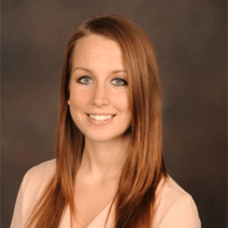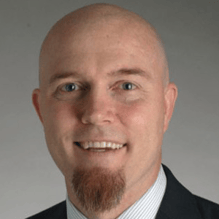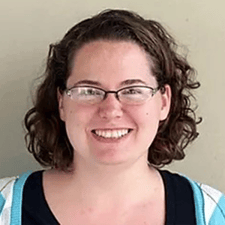They say two heads are better than one. This adage is especially true when it comes to scientific research and harnessing some of the brightest minds in the field. This collaborative spirit of discovery is the inspiration behind the Skaggs Scholars program created in 2011.
Centered at the Anschutz Medical Center at the University of Colorado and funded by a generous grant from the ALSAM Foundation, the scholarship program is designed to stimulate collaborative research among pharmacy faculty members at the University of Colorado (CU) and faculty members from one or more of the six other Skaggs Affiliate Institutions: University of Arizona, College of Pharmacy; the University of California at San Diego, Skaggs School of Pharmacy and Pharmaceutical Sciences; Idaho State University, College of Pharmacy; University of Montana, Skaggs School of Pharmacy; Scripps Research Institute / Skaggs Institute for Chemical Biology; and the University of Utah, College of Pharmacy.
According to its director, Louis Diamond, PhD, Dean Emeritus, the Skaggs Scholars Program has awarded 38 grants totaling nearly $ 6 million to professors of pharmacy at the University of Colorado and their colleagues at six other Skaggs affiliates.
“By virtually any measure one could choose to take, the Skaggs Scholars program has been a remarkable success,” said Dr Diamond.
Almost 100 percent of grant recipients have remained in academic positions since receiving their award, and many have received promotions or other types of meaningful career advancement. Several dozen peer-reviewed publications have emerged from research projects supported by Skaggs. And in Colorado alone, faculty members who received grants from the Skaggs Scholars program got about $ 20 million in additional funding for their research efforts.
The 2021-2023 Skaggs Scholars Program recipients of the Skaggs School of Pharmacy at the University of Colorado
|
Dr Heather Anderson, PhD, Associate Professor |

Dr Christina Aquilante, PharmD, Professor |

Dr Kristina Brooks, PharmD, Assistant Professor |

Dr Shaodong Dai, PhD, Associate Professor |

Dr Jed Lampe, PhD, Assistant professor |

Dr Vanessa Phelan, PhD, Assistant professor |

Dr Laura Saba, PhD, Associate Professor |
Collaborative research projects for 2021-2023
DEPRESSION AND ELECTRONIC HEALTH RECORDS
Dr Heather Anderson, PhD, Associate Professor, Director of the Pharmaceutical Outcomes Research Doctoral Program
The use of electronic health records (EHRs) data in observational research has the potential to inform the effectiveness and safety of treatment for depression in real-world settings. One of the challenges of using FSD data in observational studies is the inability to fully report on the severity of depression, which can lead to misclassification of exposures and outcomes and outcomes. biased results. We will use EHR data from the University of Utah and University of Colorado health systems to: describe the extent of missing information about the severity of depression in the EHR; use machine learning to predict the severity of depression absent from EHR data; and demonstrate the utility of machine learning in predicting the severity of depression missing in the FSD by applying the methods to a retrospective cohort study to answer a question about drug efficacy and safety.
PHARMACOGENOMY AND UNSERVED COMMUNITIES
Dr Christina Aquilante, PharmD, Professor, Pharmacogenomics Implementation Committee, Colorado Co-Chair
Title: Advancing the clinical integration of pharmacogenomics in rural and underserved communities. Brief overview: Pharmacogenomics is increasingly integrated into the settings of everyday clinical practice, greatly facilitated by clinical informatics tools. However, these advances have mostly taken place in academic medical centers and resource intensive environments. The objective of this research project is to assess the barriers and facilitators to the use of clinical informatics tools for the implementation of pharmacogenomics in rural and underserved communities, with the long-term goal to make pharmacogenomic care more accessible to a wider range of patients.
HIV & PREGNANCY
Dr Kristina Brooks, PharmD, Assistant Research Professor
Dr Brooks will examine the factors that influence plasma and cellular levels of tenofovir alafenamide (TAF), a commonly used HIV drug, in HIV-positive pregnant and postpartum women. She works in collaboration with Drs. Jeremiah Momper, Brookie Best, and Edmund Capparelli from the University of California, San Diego for this award. They will analyze samples and available data from the Colorado Antiviral Pharmacology Laboratory and IMPAACT P1026s / 2026 to support this work. Ultimately, these surveys will help inform future mechanistic studies behind pregnancy-related changes in drug exposures and optimize care for HIV-positive pregnant women.
TREATMENT OF DIABETES
Dr Shaodong Dai, PhD, associate professor
Type 1 diabetes (T1D) is one of the most common incurable autoimmune diseases. With TD1, the T cells mistakenly attack the insulin-producing beta cells in the islets of the pancreas, leading to diabetes. Dr. Dai’s group established the molecular basis for T cell epitope presentation by antigen presenting cells and generated monoclonal antibodies that specifically suppressed T cell activations by blocking interactions between epitopes and receptors for T cells. T cells. In this collaborative project with Dr. Chen at the University of Utah, they aim to explore the feasibility of using the antibody to perform potent suppression of antigen-specific T cells, in combination with the specific suppression of the activation status of diabetogenic T cells, since only activated T cells cells exert an autoimmune attack. The T cell immune checkpoint protein, Programmed Death-1 (PD-1) expressed on activated T cells will be used as a target for activated pathogenic T cells. The development of a novel T1D immunotherapy that synergizes antigen-specific suppression and activation status of diabetogenic T cells is likely to be potent, specific and safe.
TREATMENT OF CYSTIC FIBROSIS
Dr Jed Lampe, PhD, assistant professor
One of the most common bacteria that infect the lungs of patients with cystic fibrosis (CF) is called Pseudomonas aeruginosa. In order to better survive and reproduce in the lung environment of the patient with cystic fibrosis, P. aeruginosa produces a biofilm, which is a viscous layer made up of bacterial fats, sugars, proteins and DNA. To start producing the biofilm, the bacteria produce small “quorum sense” molecules called oxylipins that work to signal other nearby bacteria that it is time to start producing the molecules needed for the biofilm. In our preliminary work, we identified an enzyme from P. aeruginosa, CYP168A1, which we believe is responsible for the production of oxylipins that allow P. aeruginosa to form biofilms. This proposal aims to confirm the hypothesis and characterize CYP168A1 functionally and structurally. Understanding how CYP168A1 produces these quorum-sensing molecules in P. aeruginosa and determining its structure will allow us to design drugs that can prevent it from producing the quorum-sensing molecules, which will give antibiotics currently used to treat patients with cystic fibrosis. work. Ultimately, the research proposed here will maximize our potential for developing new drugs to treat CF patients who suffer from recurrent P. aeruginosa infection and improve their quality of life.
ANTIMICROBIAL RESISTANCE
Dr Vanessa Phelan, PhD, assistant professor
Due to antimicrobial resistance, common and potentially fatal infections are becoming increasingly incurable. One way that pathogens interact with each other is through metabolic cooperation, which leads to increased tolerance to antimicrobial drugs. In collaboration with Dr. William Gerwick of the University of California at San Diego, we will apply Precise Small Molecule Recognition Technology (SMART), an artificial intelligence-based tool for NMR spectroscopy, to living cultures of microbes pathogens to examine key molecules. involved in mediating antimicrobial resistance and tolerance in polymicrobial infections.
DISORDERS RELATED TO THE USE OF SUBSTANCES
Dr Laura Saba, PhD, Associate Professor
Substance use disorder (SUD) is a serious problem in the United States and around the world and treatment for SUD varies from patient to patient depending on the circumstances and is often unsuccessful. The goal of this grant is to augment current statistical methods and datasets used to match information on molecular changes induced by FDA-approved drugs to molecular differences observed in SUD-related samples for the identification of a new use of old drugs, i.e. reuse of drugs. While this approach to drug reorientation has been successful in the past for other diseases / disorders, SUD presents a unique set of complications (extreme differences in symptoms, common comorbidities, and organ toxicity) that make it necessary to rethink our current approach to drug reorientation. based on molecular profiles.
About the awards
Competitive Grants are awarded to faculty members of the CU Skaggs School of Pharmacy who have entered into collaborative agreements with investigators from one or more of the above Skaggs institutions. The program encourages submission of proposals from a wide range of disciplines including, but not limited to: basic pharmaceutical / biomedical science, clinical / translational science, and health outcomes research. Interdisciplinary proposals; that involve high-risk, high-return ideas that can lead to breakthrough discoveries; which are oriented towards therapeutic innovations and the acceleration of the transfer of scientific research to the bedside; or which bring together beginning researchers with confirmed confirmed researchers, are particularly appreciated. Proposals are reviewed on the basis of originality, scientific merit and significance, strength of collaborative effort, qualifications of researchers and potential for future funding.
About the Foundation
The ALSAM Foundation, a charitable institution established in 1984 by the late LS “Sam” Skaggs and his wife Aline, has supported several research and educational programs in the western United States. The Skaggs School of Pharmacy and Pharmaceutical Sciences at the University of Colorado is particularly fortunate to have a decades-long philanthropic partnership with the ALSAM Foundation, which continues to this day. The current school building on the Anschutz Medical Campus, as well as its old building on 8th Avenue in Denver, was made possible in large part through the generosity of the ALSAM Foundation.


